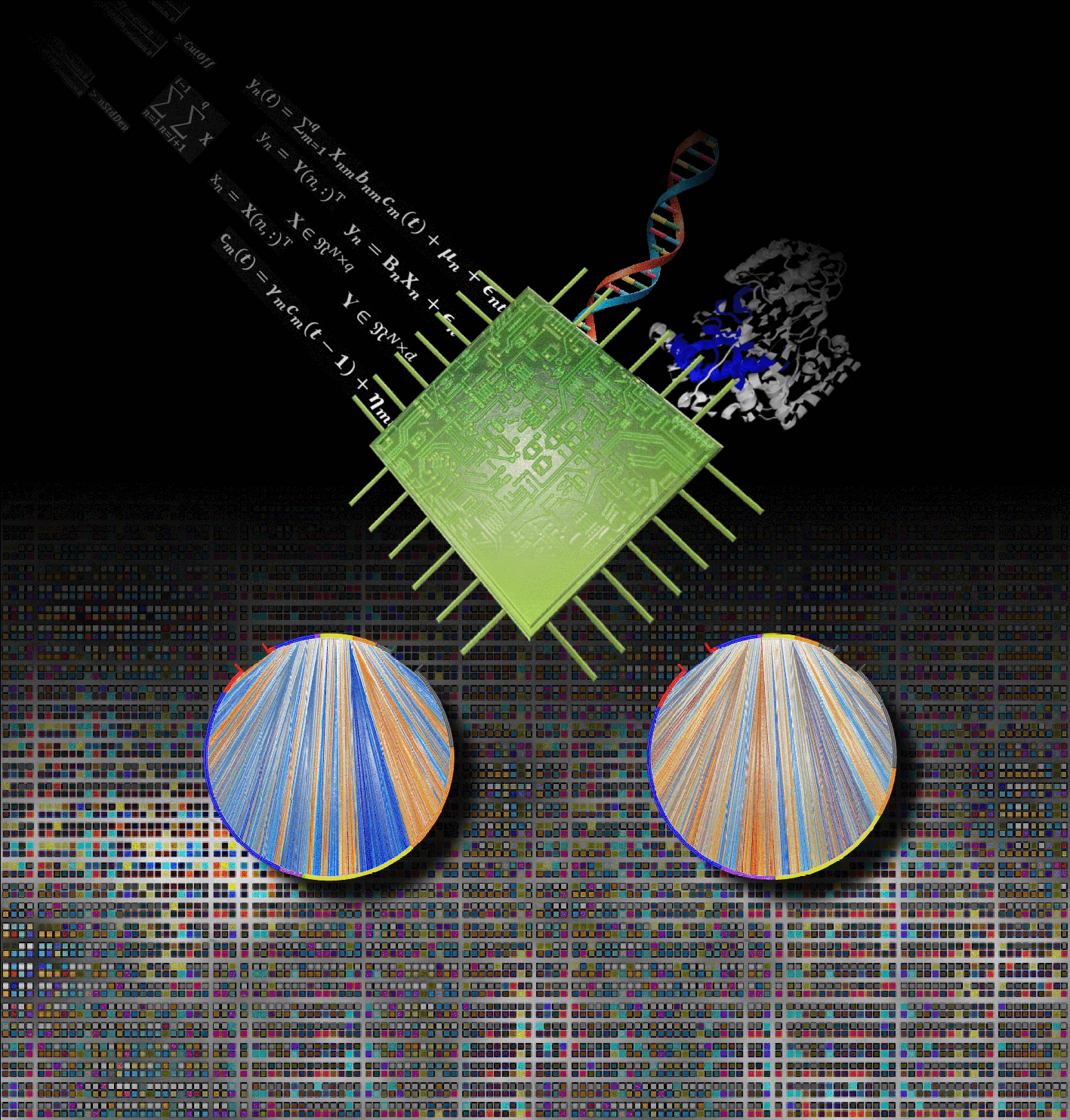
Dr Namshik Han
Position: Associate Faculty, Head of Computational Research & AI, Affiliated Principal Investigator
Personal home page:
https://www.bio.cam.ac.uk/staff/namshik-han
Email:
nh417@cam.ac.uk
PubMed journal articles - click here
Dr Namshik Han is pleased to consider applications from prospective PhD students.
I am a computational drug discovery scientist, coming from a background in machine learning, computational biology, cancer genomics and cancer epigenomics. I am Head of Computational Research & AI at Milner Therapeutics Institute in University of Cambridge and also Associate Faculty at Cambridge Centre for AI in Medicine in the same University. I also have an Adjunct Professor position at Yonsei University College of Medicine. My lab develop and apply dedicated and bespoke Artificial Intelligence technologies that deal with the uncertainty and complexity of biological datasets to reveal novel disease pathways and mechanisms. Projects within the lab include (1) identification of new therapeutic targets in a variety of diseases, (2) stratification of patients to improve personalised medicine, (3) prediction of efficacy and safety of new and existing drugs and (4) identification of drug (re)positioning opportunities.
In addition to my academic research, I have a passion for working at the interface between academia and industry to apply my research to real-world problems. In my case this is in therapeutics and patient care where AI promises to revolutionize the ability to identify disease mechanisms and potential drug targets, informing patient care from disease diagnosis through to treatment. Towards this aim, I facilitate access of the Milner Therapeutics Consortium partner organizations to cutting-edge AI technology and to develop new computational methods fulfilling the global mission of identifying new or better therapies from the analysis of biological data. Furthermore, I contributed to the establishment of Storm Therapeutics. I co-founded two start-ups: (1) KURE.ai to develop immune-oncology NK cell therapy and (2) CardiaTec to develop innovative drugs for cardiovascular diseases.
Symplectic Elements feed provided by Research Information, University of Cambridge
Predicting genes associated with RNA methylation pathways using machine learning
G Tsagkogeorga, H Santos-Rosa, A Alendar, D Leggate, O Rausch, T Kouzarides, H Weisser§ and Namshik Han§ (2022, in print) Communications Biology - preprint https://doi.org/10.1101/2021.12.10.472055
dialogi: Utilising NLP with chemical and disease similarities to drive the identification of Drug-Induced Liver Injury literature
N M Katritsis§, A Liu, G Youssef, S Rathee, M MacMahon, W Hwang, L Wollman, and N Han§ (2022, in print) Frontiers in Genetics - preprint https://doi.org/10.1101/2022.03.11.483929
Computational Discovery of Cancer Immunotherapy Targets by Intercellular CRISPR Screens
S Yim, W Hwang, N Han§, D Lee§ (2022) Frontiers in Immunology
DILIc: An AI based classifier to search for Drug-Induced Liver Injury literature
S Rathee*,§, M MacMahon*, A Liu, N Katritsis, G Youssef, W Hwang, L Wollman, N Han§ (2022) Frontiers in Genetics
Deriving time-concordant event cascades from gene expression data: A case study for Drug-Induced Liver Injury (DILI)
A Liu, N Han, J Munoz-Muriedas, A Bender (2022) PLOS Computational Biology
Identification of potential pan-coronavirus therapies using a computational drug repurposing platform
W Hwang and N Han (2021) Methods
Identification of SARS-CoV-2 induced pathways reveal drug repurposing strategies
N Han*§, W Hwang*, Tzelepis K*, … F Weber and T Kouzarides§ (2021) Science Advances
Current and prospective computational approaches and challenges for developing COVID-19 vaccine
W Hwang*, W Lei*, NM Katritsis*, M MacMahon*, K Chapman and N Han (2021) Advanced Drug Delivery Reviews
Methylation of histone H3 at lysine-37 by Set1 and Set2 prevents spurious DNA replication
H Santos-Rosa*§, G Millan-Zambran*, N Han*, T Leonardi, M Klimontova, ... and T Kouzarides§ (2021) Molecular Cell
The inflammatory niche directs alveolar regeneration via Krt8+Cldn4+ regenerative progenitors
J Choi, J-E Park†, G Tsagkogeorga†, B-K Koo, N Han‡ and J-H Lee (2020) Cell Stem Cell
Differential expression of soluble receptor for advanced glycation end-products (sRAGE) in mice susceptible or resistant to chronic colitis
M Bramhall, K Rich, A Chakraborty, L Logunova, N Han†, ... and S Cruickshank (2020) Inflammatory Bowel Diseases
A novel long noncoding RNA Linc-ASEN represses cellular senescence through multileveled reduction of p21 expression
H C Lee*, D Kang*, N Han†, Y Lee, … and J Lee (2019) Cell Death & Differentiation
Genomic positional conservation identifies topological anchor point RNAs linked to developmental loci
P Amaral*, T Leonardi*, N Han*, E Vire, D K Gascoigne, … and T Kouzarides (2018) Genome Biology
Long non-coding RNA ChRO1 facilitates ATRX/DAXX-dependent H3.3 deposition for transcription-associated heterochromatin reorganization
J Park, H Lee, N Han†, S Kwak, … and E J Cho (2018) Nucleic Acid Research
DDX3X RNA helicase affects breast cancer cell cycle progression by regulating expression of KLF4
E Cannizzaro*, A J Bannister*, N Han†, and T Kouzarides (2018) FEBS Letters
TIGERi: Modeling and visualizing the responses to perturbation of a transcription factor network
N Han§, H Noyes, A Brass§ (2017) BMC Bioinformatics
Promoter-bound METTL3 maintains myeloid leukaemia by m6A-dependent translation control
I Barbieri*, K Tzelepis*, L Pandolfini*, … N Han†, … G Vassiliou§ and T Kouzarides§ (2017) Nature
FOXM1 and polo-like kinase 1 are co-ordinately overexpressed in patients with gastric adenocarcinomas
M Dibb, N Han†, J Choudhury, … and A D Sharrocks (2015) BMC research notes
Deregulation of the FOXM1 target gene network and its coregulatory partners in oesophageal adenocarcinoma
E F Wiseman, X Chen, N Han†, A Webber, … and A D Sharrocks (2015) Molecular Cancer
The forkhead transcription factor FOXK2 acts as a chromatin targeting factor for the BAP1-containing histone deubiquitinase complex
Z Ji, H Mohammed, … N Han, … and A D Sharrocks (2014) Nucleic acids research
The Forkhead TF FOXM1 Controls Cell Cycle-Dependent Gene Expression through an Atypical Chromatin Binding Mechanism
X Chen, G A Muller, … N Han, … and A D Sharrocks (2013) Molecular and Cellular Biology
Progressive lung cancer determined by expression profiling and transcriptional regulation
N Han*, Z Dol*, O Vasieva, … and J K Field (2012) International Journal of Oncology
The FOXM1-PLK1 axis is upregulated in oesophageal adenocarcinoma
M Dibb, N Han†, J Choudury, … and A D Sharrocks (2012) British Journal of Cancer
Protein kinase C regulates late cell cycle-dependent gene expression
Z Darieva, N Han†, K Doris, B A Morgan, A D Sharrocks (2012) Molecular and Cellular Biology
* Co-first author
§ Co-corresponding author
† Bioinformatics lead author
‡ Bioinformatics supervisor
















